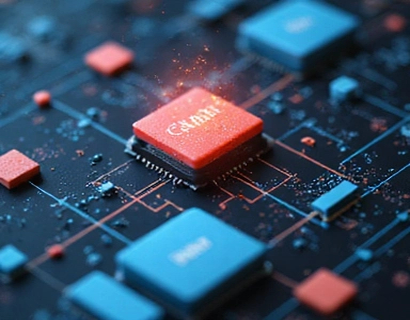Smart Contracts and Management Tools: Revolutionizing Governance for Enhanced Democracy and Participation
In recent years, the intersection of technology and governance has given rise to innovative solutions that promise to transform the way democratic processes are conducted. Among these, smart contracts and advanced management tools stand out as pivotal elements in streamlining decision-making, enhancing transparency, and boosting community engagement. This article explores the transformative potential of these technologies, focusing on how they can foster universal democracy and participatory governance, catering to individuals and organizations committed to pioneering new democratic solutions.
The concept of smart contracts, first introduced by computer scientist Nick Szabo in the early 1990s, has evolved significantly with the advent of blockchain technology. Smart contracts are self-executing contracts with the terms of the agreement directly written into code. They automatically enforce and execute the terms of a contract when predefined conditions are met, eliminating the need for intermediaries and reducing the risk of fraud or human error. In the context of governance, smart contracts can revolutionize the way laws and regulations are implemented, ensuring that rules are followed precisely and transparently.
One of the most significant advantages of smart contracts in governance is their ability to streamline decision-making processes. Traditional governance often involves cumbersome and time-consuming procedures, from proposal submission to voting and implementation. Smart contracts can automate these steps, making the process more efficient and accessible. For instance, a smart contract can be programmed to collect and verify proposals from citizens, count votes, and automatically implement the chosen decision once the required thresholds are met. This not only speeds up the process but also reduces the potential for manipulation or delay.
Enhancing transparency is another critical area where smart contracts excel. In conventional governance systems, the lack of transparency can lead to mistrust and corruption. Smart contracts, being transparent by nature, allow all stakeholders to view the terms of a contract and the progress of its execution in real-time. This level of transparency builds trust among citizens and ensures accountability. For example, in budget allocation, a smart contract can track the distribution of funds, ensuring that public money is used as intended and that every transaction is recorded and verifiable.
Community engagement is a cornerstone of participatory governance, and smart contracts and management tools are instrumental in fostering greater participation. Traditional methods of public consultation and voting often suffer from low turnout and disengagement, particularly among younger demographics. By leveraging blockchain technology, governance platforms can create more interactive and engaging experiences. For instance, a governance platform can use smart contracts to facilitate direct voting on local issues, with real-time updates on vote counts and results. This immediacy and transparency can motivate more citizens to participate in the democratic process.
Moreover, smart contracts can be designed to lower the barriers to entry for participation. In many traditional systems, the complexity of legal language and the bureaucratic hurdles can deter individuals from engaging. Smart contracts, with their clear and concise code, can simplify the process, making it more accessible to a broader audience. Additionally, management tools can provide user-friendly interfaces and educational resources to help citizens understand and utilize these technologies effectively.
The integration of smart contracts and management tools also enhances the efficiency of governance operations. Administrative tasks such as record-keeping, compliance monitoring, and reporting can be automated, freeing up resources for more strategic initiatives. For example, a smart contract can be used to manage property registries, ensuring that all transactions are recorded accurately and promptly. This not only reduces administrative burdens but also minimizes the potential for disputes and errors.
Another area where these technologies shine is in the management of public services. Smart contracts can be used to create decentralized autonomous organizations (DAOs) for managing services like healthcare, education, and infrastructure. These DAOs can operate transparently and democratically, with decisions made collectively by stakeholders. For instance, a healthcare DAO could manage the allocation of resources, prioritize services based on community needs, and ensure that funding is used efficiently and effectively.
The potential for smart contracts and management tools to enhance democracy extends beyond just administrative efficiency. They can also address some of the fundamental challenges faced by democratic systems, such as voter apathy and disengagement. By providing more direct and meaningful ways for citizens to participate in governance, these technologies can reinvigorate democratic processes. For example, a governance platform could use smart contracts to enable citizens to propose and vote on local initiatives, with the results binding and enforceable through the smart contract. This direct form of democracy can empower citizens and make them feel more connected to the decision-making process.
Furthermore, smart contracts can help mitigate the influence of special interest groups and money in politics. Traditional political campaigns often rely on significant financial resources, which can lead to undue influence and corruption. Smart contracts can be designed to limit contributions and ensure that funding is used transparently and for its intended purpose. This can level the playing field and promote a more equitable political landscape.
In addition to these benefits, smart contracts and management tools can also enhance the resilience and security of governance systems. Blockchain technology, on which smart contracts are built, is inherently secure due to its decentralized and cryptographic nature. This makes it highly resistant to tampering and cyber attacks, ensuring the integrity of governance processes. For instance, a smart contract-based voting system would be far more secure than traditional paper-based systems, reducing the risk of fraud and ensuring that every vote is counted fairly.
The implementation of smart contracts and management tools in governance also aligns with the growing demand for open and transparent government. Citizens increasingly expect their governments to operate with transparency and accountability. By adopting these technologies, governments can meet these expectations and build trust with their constituents. For example, a smart contract can be used to manage public procurement processes, with all steps from tender posting to contract execution being publicly visible and verifiable.
However, the adoption of smart contracts and management tools in governance is not without challenges. One of the primary concerns is the technical complexity and the need for a skilled workforce to develop and maintain these systems. Governments and organizations will need to invest in training and education to build the necessary expertise. Additionally, there is a need for robust regulatory frameworks to ensure that these technologies are used ethically and effectively, protecting the rights and privacy of citizens.
Another challenge is the digital divide, where not all citizens have equal access to the technology required to participate in smart contract-based governance systems. To address this, it is crucial to develop inclusive solutions that cater to various levels of technological proficiency and access. This could involve creating user-friendly interfaces, providing offline options, and ensuring that governance platforms are accessible to all, regardless of their digital literacy.
Despite these challenges, the potential benefits of smart contracts and management tools in governance are substantial. By streamlining decision-making, enhancing transparency, and boosting community engagement, these technologies can help create more efficient, accountable, and participatory democratic systems. As more individuals and organizations recognize the value of these innovations, we can expect to see a new era of collaborative and effective governance.
In conclusion, smart contracts and management tools are at the forefront of a technological revolution in governance, offering transformative solutions to enhance democracy and participation. By leveraging the power of blockchain and smart contracts, we can build governance systems that are more transparent, efficient, and inclusive. As we move forward, it is essential to address the challenges and ensure that these technologies are harnessed for the greater good, fostering a truly democratic and participatory society.











































